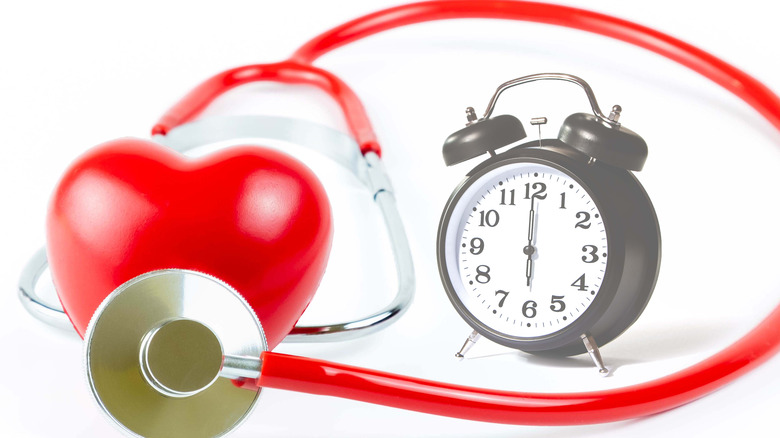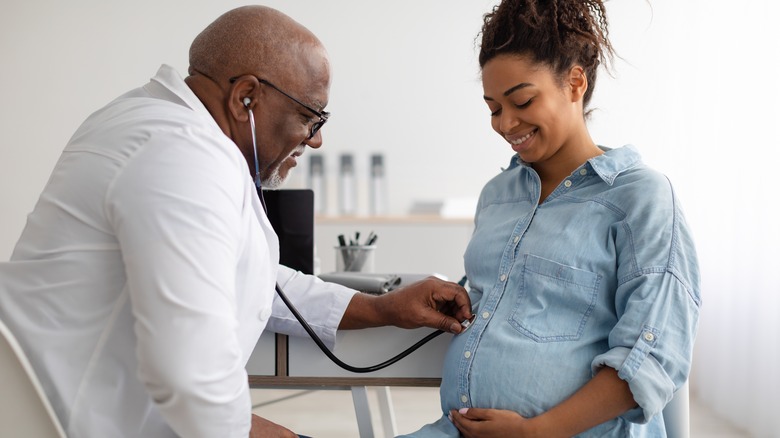Is It Safe To Take Blood Pressure Medications During Pregnancy?
High blood pressure (also known as hypertension) is a condition when you have higher-than-normal blood pressure readings. You might have high blood pressure if your readings are consistently around 120-129 systolic with less than 80 mm Hg diastolic, according to the American Heart Association (AHA). Generally speaking, this serious condition affects about half of American adults, but many are unaware they have it, per AHA.
Some women also experience high blood pressure during pregnancy, which comes with various risks. According to the National Heart, Lung, and Blood Institute, 1 in every 12 to 17 pregnancies in the United States involve high blood pressure complications, which can harm the mother's vital organs.
High blood pressure during pregnancy has various causes, and some are more dangerous than others. As a pregnant woman, is it safe to take blood pressure medications during pregnancy? Here are the various causes of high blood pressure during pregnancy and how it's treated.
Causes of high blood pressure during pregnancy
Chronic hypertension is one of the main causes of high blood pressure during pregnancy. According to the American College of Obstetricians and Gynecologists, the condition is present in up to 1.5% of pregnant women. These women may develop health risks, including significant maternal and neonatal morbidity and mortality. Preeclampsia is the most prevalent complication among women with chronic hypertension, according to a 2014 study published in Circulation. You may develop preeclampsia late into your pregnancy, or even as early as 20 weeks (via WebMD). The condition is often characterized by weight gain, dizziness, protein in the urine, and sometimes seizures, if the condition escalates into eclampsia, per WebMD.
Gestational hypertension is another common cause of high blood pressure, affecting about 3 in 50 pregnancies, as revealed by Stanford Medicine. However, this type of hypertension differs from chronic hypertension and preeclampsia — the main difference is that gestational hypertension begins in the second half of your pregnancy and usually disappears after birth.
Is it safe to take high blood pressure medication during pregnancy?
If you have hypertension when you're pregnant, various medications can help stabilize your blood pressure — many of which are safe and effective in managing complications. It's important to take your blood pressure medication, as untreated high blood pressure increases your risk of a heart attack, according to the Mayo Clinic. Most high blood pressure medications are safe for pregnant women, but you may need to avoid taking angiotensin II receptor blockers, angiotensin-converting enzyme inhibitors, and renin inhibitors.
Taking any medication without consulting your doctor is risky. According to MedicalNewsToday, 1 in 5 people in the United States take medications that increase their blood pressure. For this reason, it's vital to let your doctor know exactly what medications you're currently taking, regardless of whether they're prescribed for blood pressure or other conditions.
It's also important to schedule antenatal visits with your doctor, who can monitor your blood pressure. During appointments, your doctor or midwife measures your blood pressure and assesses the amount of protein in your urine, per the National Health Service. High protein levels may be an early sign of preeclampsia (via WebMD). The antenatal team may offer you a placental growth factor test to diagnose or rule out preeclampsia, according to a 2017 study published in the Journal of Human Hypertension.



